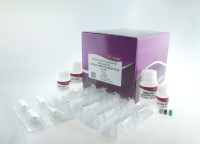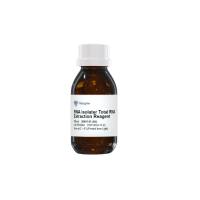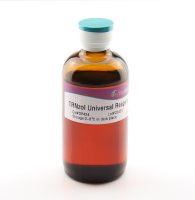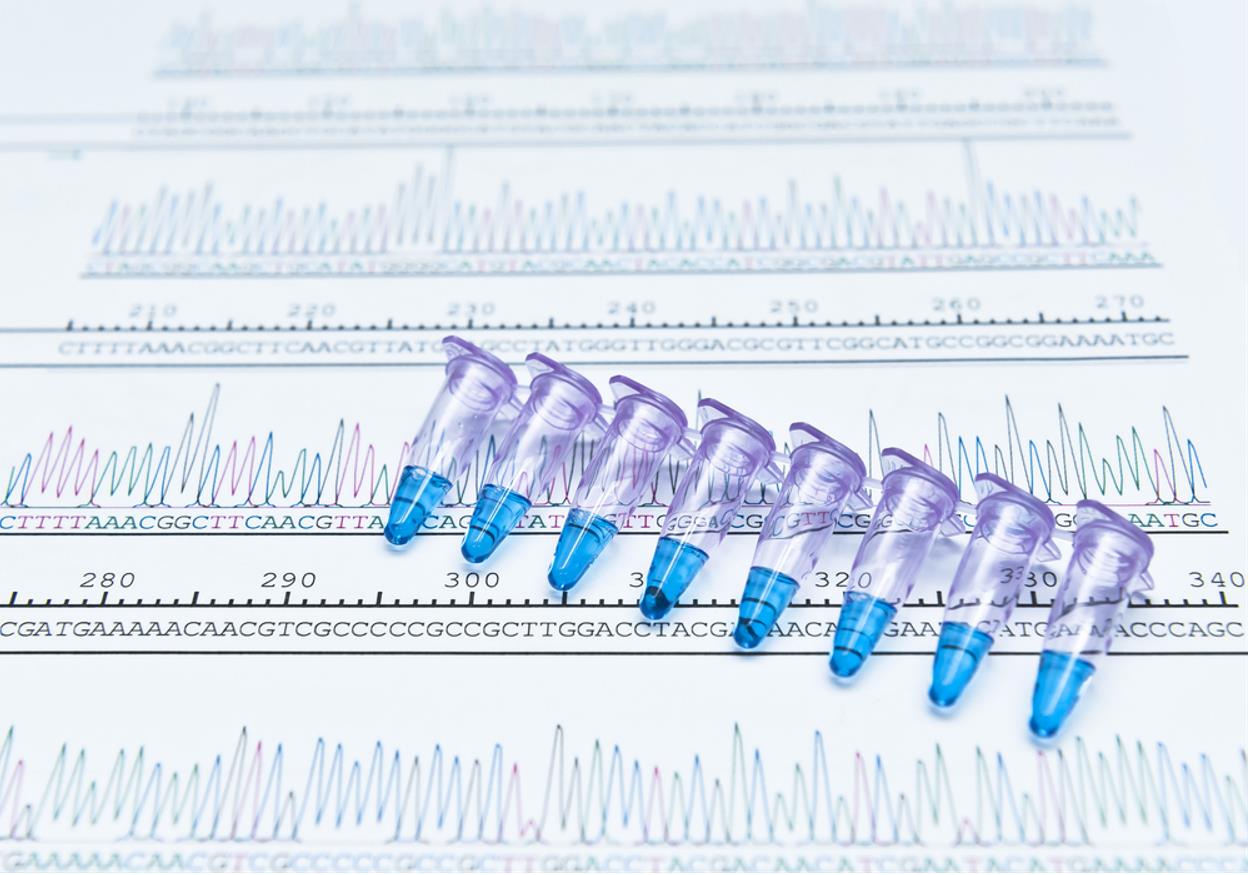RNA purification using TRizol--TRIZOL法提取RNA
互联网
Reagents and Equipments
TRIzol Reagent (Life Technologies cat# 15596-026) or TRI reagent (Sigma cat # T-9424)
DEPC (RNase free) water or 0.5% SDS solution in DEPC treated water
Chloroform (Fisher )
Isopropyl alcohol (2-Propanol) (Fisher)
75% Ethanol (in DEPC treated water)
Sterile or RNase treated pipette tips, microcentrifuge tubes, and pestles or motorized homogenizer.
Microcentrifuge
1.Homogenization for Cell Suspensions
a.Place 1 ml aliquots of the cell suspension in sterile RNase free 1.5 ml microcentrifuge tubes.
b.Centrifuge for 1 minute to pellet the cells.
c.Pour off the supernatant.
d.Add 1 ml of TRIzol or TRI reagent to the tubes.
e.Lyse cells by repetitive pipetting.
f.Centrifuge homogenate at 12000 x g for 10 minutes at 4℃.
g.Transfer the homogenate in a sterile microcentrifuge tube.
h.If this RNA will be used for RT-PCR, repeat steps f and g twice.
Modification for tissues
a.Add 1 ml of TRIzol or TRI reagent to every 50-100 mg of tissue. Sample volume should not exceed 100 μl. If you using 1.5 -2 ml microcentrifuge tube and pestle for homogenization, start with 500 μl of TRIzol or TRI reagent, then add remaining 500 μl.
b.Homogenize the samples using a sterile or RNAse free plastic, glass pestles or power homogenizer and tubes.
Modification for monolayers
a.Lyse cells directly in a culture dish by adding 1 ml of TRIzol or TRI reagent to a 3.5 cm diameter dish.
b.Pass the cells through a pipette several times.
2. Phase Separation
a.Incubate samples (from 1g) for 5 minutes at room temperature.
b.Add 0.2 ml of chloroform to each tube.
b.Cap each tube. Shake samples vigorously by hand for 15 seconds.
c.Incubate samples for 5 minutes at room temperature.
d.Centrifuge samples for 15 minutes at 12,000 x g at 4oC.
3. RNA Precipitation
a.Transfer the upper aqueous phase to a fresh tube.
b.Add 0.5 ml of isopropyl alcohol to precipitate RNA. If this RNA will be used for RT-PCR, first add 50 μl isopropyl alcohol, mix, incubate the samples at room temperature for 5 minutes and centrifuge at 12,000 x g for 10 minutes at 4oC. Transfer the sample in a new tube.
c.Incubate for 5-10 minutes at room temperature.
d.Centrifuge for 10 minutes at 12,000 x g at 4oC. The RNA will form a pellet on the side or bottom of the tube.
4. RNA Wash
a.Discard the supernatant.
b.Wash pellet with 1 ml 75% ethanol.
c.Mix sample by vortexing. The RNA pellet may float.
d.Centrifuge at 12000 x g for 5 minutes at 4oC. If this RNA will be used for RT-PCR repeat steps a,b and c twice.
e.RNA pellet may be stored in ethanol at -70oC for months.
5. Redissolving the RNA
a.Remove supernatant.
b.Air dry the pellet for 5-10 minutes. Do not completely dry out the pellet.
c.Dissolve pellet in 30 to 60 μl RNase free water or 0.5% SDS by passing the solution through a pipette tip and incubating for 10 minutes at 55-60oC.
6. Determination of RNA Concentration and Purity
a.Take 2 to 5 μl RNA sample from the original stock, diluted with 998 or 995 μl RNase free water in a 1.5 ml microcentrifuge tube. This will give you 500 or 200 time dilution of the RNA sample.
b.Pipet 1 ml RNAse free water in a clean cuvette and read absorbance as blank.
c.Pipet the diluted RNA sample in to a clean cuvette and read absorbance at 260 nm and 280 nm.
d. Use the formula below to determine RNA Concentration of the original sample:
[RNA μg/μl]= A260 x 33 x dilution factor / 1000
e. To determine the purity of the RNA sample, calculate ratio of A260/A280. Ratios between 1.7 to 2 represent good RNA.
Preparation of RNase-free water
a.Measure water into RNase-free glass bottles.
b.Add 0.01% (v/v) diethylpyrocarbonate (DEPC).
c.Let stand overnight.
d.Autoclave.
Note: RNase free DEPC treated water is Biotecx brand (cat # BL-5611).
Note: If using 0.5% SDS solution to resuspend the RNA. It must be prepared in RNase free water.










